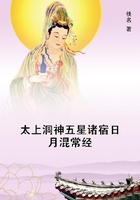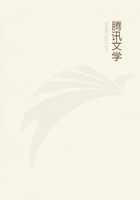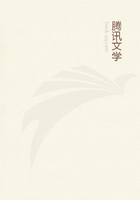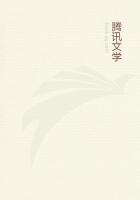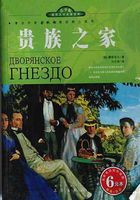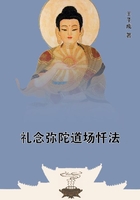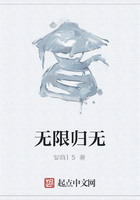The poet must please; if he wishes to be successful and popular, he must suit himself to the tastes of his public; and even if he be indifferent to immediate fame, he must, as belonging to one of the most impressionable, the most receptive species of humankind, live in a sense WITH and FOR his generation. To meet this demand upon his genius, Chaucer was born with many gifts which he carefully and assiduously exercised in a long series of poetical experiments, and which he was able felicitously to combine for the achievement of results unprecedented in our literature. In readiness of descriptive power, in brightness and variety of imagery, and in flow of diction, Chaucer remained unequalled by any English poet, till he was surpassed--it seems not too much to say, in all three respects--by Spenser. His verse, where it suits his purpose, glitters, to use Dunbar's expression, as with fresh enamel, and its hues are variegated like those of a Flemish tapestry. Even where his descriptive enumerations seem at first sight monotonous or perfunctory, they are in truth graphic and true in their details, as in the list of birds in the "Assembly of Fowls,"quoted in part on an earlier page of this essay, and in the shorter list of trees in the same poem, which is, however, in its general features imitated from Boccaccio. Neither King James I of Scotland, nor Spenser, who after Chaucer essayed similar tours de force, were happier than he had been before them. Or we may refer to the description of the preparations for the tournament and of the tournament itself in the "Knight's Tale," or to the thoroughly Dutch picture of a disturbance in a farm-yard in the "Nun's Priest's." The vividness with which Chaucer describes scenes and events as if he had them before his own eyes, was no doubt, in the first instance, a result of his own imaginative temperament; but one would probably not go wrong in attributing the fulness of the use which he made of this gift to the influence of his Italian studies--more especially to those which led him to Dante, whose multitudinous characters and scenes impress themselves with so singular and immediate a definiteness upon the imagination. At the same time, Chaucer's resources seem inexhaustible for filling up or rounding off his narratives with the aid of chivalrous love or religious legend, by the introduction of samples of scholastic discourse or devices of personal or general allegory. He commands, where necessary, a rhetorician's readiness of illustration, and a masque-writer's inventiveness, as to machinery; he can even (in the "House of Fame") conjure up an elaborate but self-consistent phantasmagory of his own, and continue it with a fulness proving that his fancy would not be at a loss for supplying even more materials than he cares to employ.
But Chaucer's poetry derived its power to please from yet another quality;and in this he was the first of our English poets to emulate the poets of the two literatures to which in the matter of his productions, and in the ornaments of his diction, he owed so much. There is in his verse a music which hardly ever wholly loses itself, and which at times is as sweet as that in any English poet after him.
This assertion is not one which is likely to be gainsaid at the present day, when there is not a single lover of Chaucer who would sit down contented with Dryden's condescending mixture of censure and praise. "The verse of Chaucer," he wrote, "I confess, is not harmonious to us. They who lived with him, and some time after him, thought it musical; and it continues so, even in our judgment, if compared with the numbers of Lydgate and Gower, his contemporaries: there is a rude sweetness of a Scotch tune in it, which is natural and pleasing, though not perfect." At the same time, it is no doubt necessary, in order to verify the correctness of a less balanced judgment, to take the trouble, which, if it could but be believed, is by no means great, to master the rules and usages of Chaucerian versification. These rules and usages the present is not a fit occasion for seeking to explain. (It may, however, be stated that they only partially connect themselves with Chaucer's use of forms which are now obsolete--more especially of inflexions of verbs and substantives (including several instances of the famous final e), and contractions with the negative ne and other monosyllabic words ending in a vowel, of the initial syllables of words beginning with vowels or with the letter h. These and other variations from later usage in spelling and pronunciation--such as the occurrence of an e (sometimes sounded and sometimes not) at the end of words in which it is now no longer retained, and again the frequent accentuation of many words of French origin in their last syllable, as in French, and of certain words of English origin analogously--are to be looked for as a matter of course in a last writing in the period of our language in which Chaucer lived. He clearly foresaw the difficulties which would be caused to his readers by the variations of usage in spelling and pronunciation--variations to some extent rendered inevitable by the fact that he wrote in an English dialect which was only gradually coming to be accepted as the uniform language of English writers. Towards the close of his "Troilus and Cressid," he thus addresses his "little book," in fear of the mangling it might undergo from scriveners who might blunder in the copying of its words, or from reciters who might maltreat its verse in the distribution of the accents:--And, since there is so great diversity In English, and in writing of our tongue, I pray to God that none may miswrite thee Nor thee mismetre, for default of tongue, And wheresoe'er thou mayst be read or sung, That thou be understood, God I beseech.

